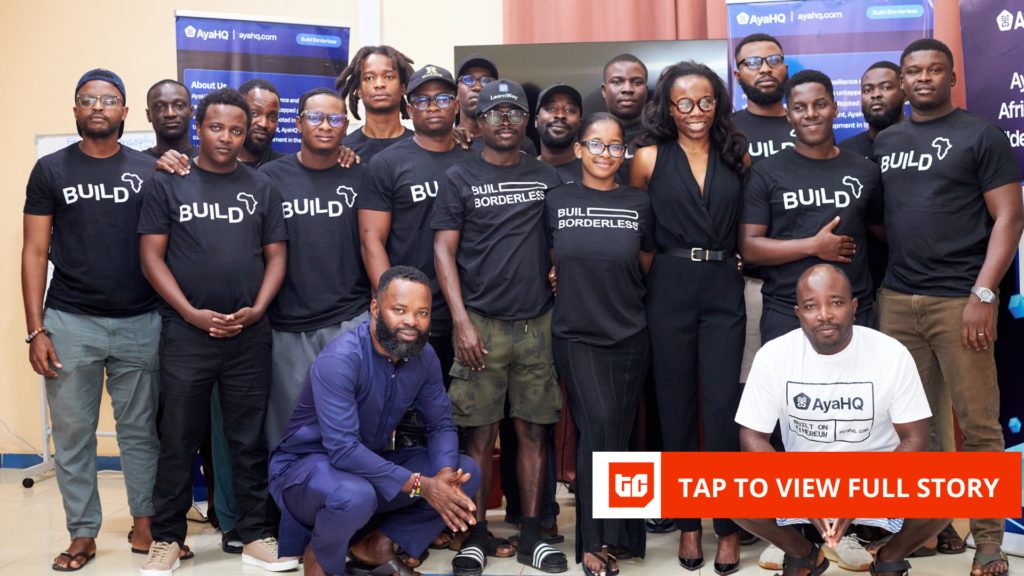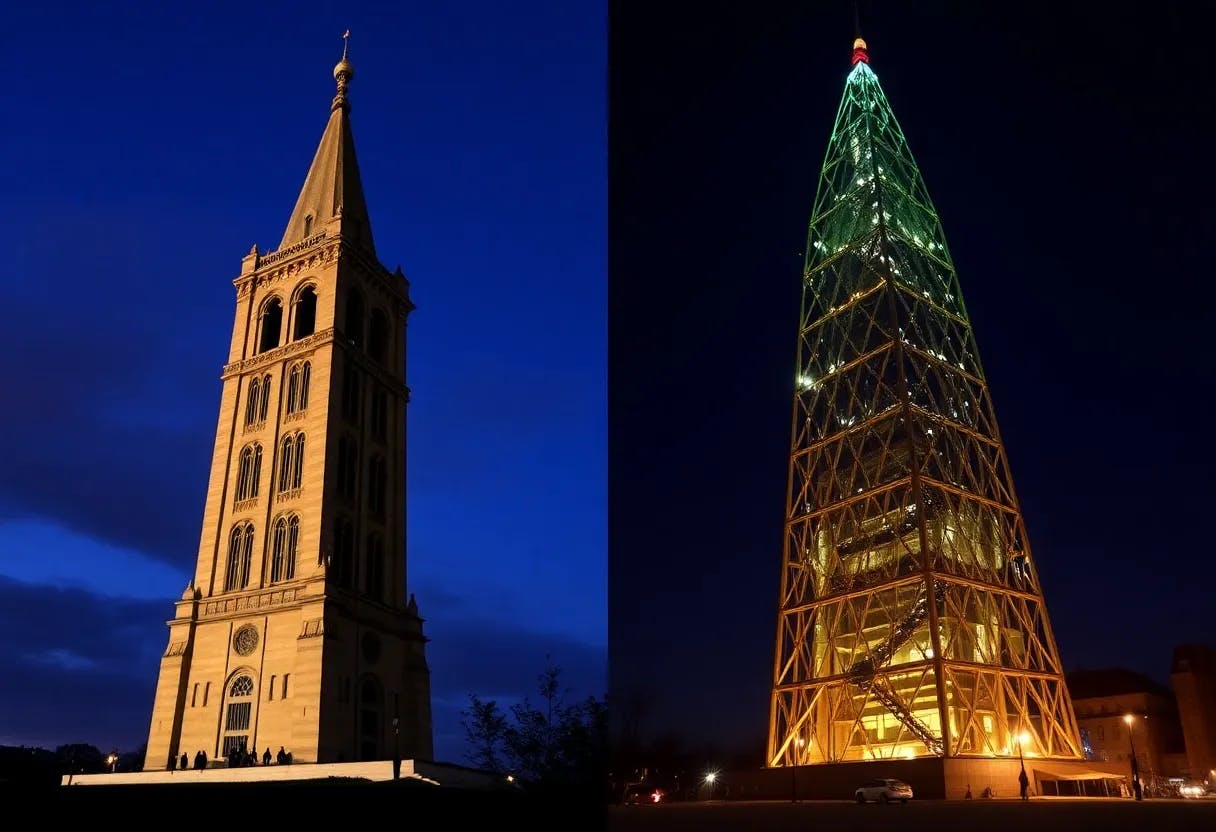AyaHQ, a pan-African Web3 talent development startup, is in talks with investors to raise $10 million, with plans to split the funds between a $5 million microfund for incubated startups and a special economic zone in Accra that will double as a founder campus and residency.
The startup is betting on Africa’s emerging blockchain sector. By creating a collective pool of talent backed by training and equity-based incentives, AyaHQ wants to strengthen an ecosystem where several startups, including Nigeria’s LazerPay, VIBRA, and South Africa’s Momint, have folded within four years due to funding and regulatory challenges. If AyaHQ’s strategy works, it could give investors a de-risked entry into Africa’s crypto sector and allow founders to build with long-term support.
Founded in 2020 by Eric Annan, Pishikeni Tukura, and Dennis Ukonu, AyaHQ began by connecting African developers with global Web3 jobs. Its first venture, Ayagigs, launched in 2021 as a marketplace modelled after Fiverr and Upwork, but it struggled to scale and was closed the following year.
AyaHQ has since repositioned itself as a collective incubator that provides training, incubation and founder residencies in Ghana and Kenya, supporting over 50 startups.
“Aya is a trust layer,” Annan said in an interview. “ It is not just about talent. It is about collaboration and building conviction together.”
The startup has raised about $1 million in total funding, including equity and grants. Backers include Flori Ventures, Orange DAO and Techstars Crypto Boston, an accelerator run by the firm, which invested $120,000 in the startup’s only publicly disclosed round in 2022. Coinbase also provided a grant that financed AyaHQ’s first training cohort, which drew 8,000 applications from 34 countries for just 350 places.
AyaHQ’s model is built around equity stakes. It takes 2% of every incubated company. AyaHQ owns 1% of every Web3 startup in its ecosystem, while the other 1% is pooled and shared across all founders in a community-like play. This makes every founder a co-owner in every startup incubated by AyaHQ, incentivising them to share advice, mentorship, connections, resources, and often, talent, with other co-builders in the ecosystem.
AyaHQ-incubated startups do not share profit with the company, since the equity AyaHQ holds is a long-term play rather than an immediate revenue arrangement, giving them confidence to build, said Annan. With a microfund, that confidence will grow further as AyaHQ begins to directly back its startups with capital, putting money behind its ambitions.
Vicentia Asilevi, co-founder of Soccersm, a Web3 e-tournament hosting platform, one of the ventures incubated by AyaHQ, confirmed this arrangement to .
“We are an AyaHQ incubated company, and AyaHQ has 2% equity in Soccersm with no profit share agreement,” said Vicentia. “We are also aware that of the 2% equity, AyaHQ only has 1%, while the remaining 1% goes into the collective pool managed by AyaHQ.”
AyaHQ’s portfolio includes 50 startups operating in payments, gaming, edtech and decentralised finance (DeFi). The startups are small and mostly pre-revenue, but AyaHQ views the equity as a future asset. The value is only realised if companies in the portfolio raise funding, are acquired, or go public.
AyaHQ also runs AyaLabs, a technology platform that functions as an end-to-end infrastructure for Web3 hackathons and developer experiments. Inspired by global players such as DoraHacks, AyaLabs allows blockchain companies and organisations to host hackathons, run bounties and reward developers directly on the platform.
Since launch, AyaLabs has attracted nearly 5,000 developers, hosted more than 100 hackathons, and distributed close to $100,000 in prizes, Annan said. AyaHQ monetises the platform by charging blockchain companies to engage developers and run product tests.
AyaHQ also makes money from providing incubation services for blockchains. Its most prominent partnership is with Lisk, a layer 2 blockchain company. AyaHQ-incubated startups are encouraged to build on Lisk but are not barred from integrating other blockchains later.
“Our incubation-as-a-service is generating revenues for AyaHQ at the moment. We are presently working exclusively with Lisk but will entertain other conversations once our contract lapses,” Annan said.
The partnership is crucial as it connects AyaHQ’s growth trajectory with Lisk’s push for adoption in Africa. As more startups launch on Lisk, it increases the transaction volumes and total value locked (TVL)—a key adoption metric—on the blockchain. AyaHQ and Lisk review the partnership terms yearly, but Annan declined to disclose its monetary value of that deal.
AyaHQ disclosed it earned $350,000 in revenue in 2024 and has about six to ten months of runway left. The $10 million the startup is seeking would extend that runway. The microfund would allow AyaHQ to write cheques of $25,000–$50,000 for early-stage Web3 startups, while the rest would fund its physical campus in Accra and a second hub in Kilifi, Kenya.
The Web3 startup, primarily pan-African, has previously run programmes, hackathons, and roadshows across Ghana, Kenya, Nigeria, Rwanda, Uganda, and South Africa. Its expansion plans are pinned on building residencies into what Annan calls “tech campuses” that provide housing, workspace and incubation under one roof. AyaHQ says in-person incubation delivers stronger results than virtual programmes, hence why these campuses strongly underpin its expansion plans.
Across major crypto hubs in Africa, there is a strong competition among Web3 edtech and talent development startups. Web3Bridge, a Nigerian startup, runs training programmes for blockchain developers, and smaller accelerators across Kenya and South Africa are also building talent pipelines. Yet AyaHQ frames its model less as competition and more as collaboration. It has already partnered with Web3Bridge to share resources and training.
“Our biggest competition is ourselves,” said Annan. “There are more than a billion people in Africa. Even if [AyaHQ] decides to build the talent layer for the continent, we cannot do everything. So we think about collaboration.”
AyaHQ’s ambitions are big, but so is its founder’s conviction. Annan co-built Nigeria’s first stablecoin project, NGNX, in 2019, which failed to gain traction, and later launched Digital Kudi, an over-the-counter (OTC) platform that allowed people to buy crypto, which also folded. Yet he remains optimistic that this time, AyaHQ is on the right track.
“I believe blockchain needs Africa more than Africa needs blockchain. AyaHQ is building the trust layer that will unlock that future,” said Annan.
Mark your calendars! Moonshot by is back in Lagos on October 15–16! Join Africa’s top founders, creatives & tech leaders for 2 days of keynotes, mixers & future-forward ideas. Early bird tickets now 20% off—don’t snooze! moonshot..com









